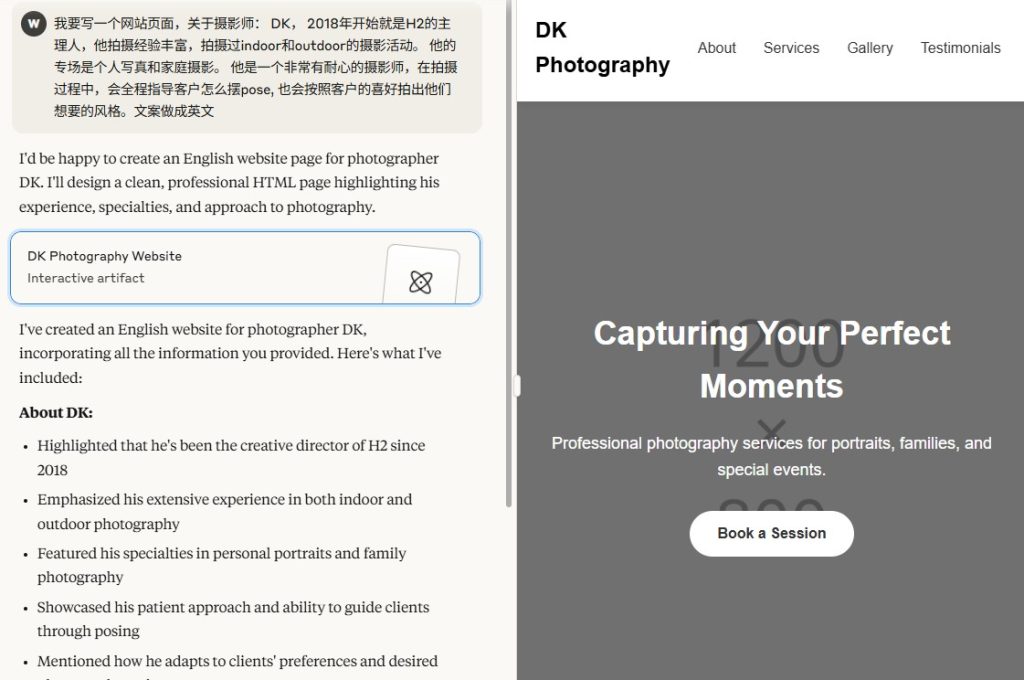In the dynamic landscape of digital marketing, Search Engine Optimization (SEO) remains a cornerstone for businesses looking to establish a strong online presence. While B2C companies have traditionally dominated the SEO conversation, B2B organizations are increasingly recognizing the importance of optimizing their online assets to drive organic traffic. In this blog, we’ll explore some essential B2B SEO tips to help businesses enhance their visibility, reach their target audience, and ultimately drive conversions.
Key Difference Between B2B SEO and B2C SEO
SEO strategies for B2B (Business-to-Business) and B2C (Business-to-Consumer) companies diverge due to disparities in target audiences, sales cycles, and purchasing behaviors. Here are the key distinctions for B2B and B2C SEO:
| B2B SEO | B2C SEO | |
| Audience Characteristics | Targets businesses and professionals as the audience. Decision-making involves multiple stakeholders, and content needs to address the concerns of these decision-makers. | Targets individual consumers. Decision-making is often more straightforward, and the content aims to appeal to the personal needs and preferences of the end consumer. |
| Decision-Making Process | Involves a more complex and lengthy decision-making process. B2B purchases often require approvals, evaluations, and considerations from various departments within an organization. | Typically involves a shorter decision-making process, with consumers making individual purchase decisions based on personal preferences, emotions, and immediate needs. |
| Keyword Strategy | Utilizes specific, technical, and industry-specific keywords. Decision-makers are often familiar with industry jargon, requiring a more sophisticated keyword strategy. | Uses more straightforward and consumer-friendly keywords. Focuses on keywords that resonate with the emotions and needs of individual consumers. |
| Content Types | Emphasizes in-depth and comprehensive content such as whitepapers, case studies, and industry reports. Decision-makers seek detailed information to inform complex business decisions. | Leverages a variety of content types, including product descriptions, reviews, and visually appealing content that speaks to the personal desires and lifestyles of consumers. |
| Sales Cycle Length | Involves a longer sales cycle due to the complexity of B2B transactions. Decision-makers may take time to evaluate proposals, negotiate terms, and obtain approvals. | Generally has a shorter sales cycle, with consumers making quicker purchase decisions based on personal needs and preferences. |
| Lead Generation Focus | Places a strong emphasis on lead generation, often involving the capture of leads through forms, downloadable resources, and other mechanisms. | While lead generation is important, the focus may be more on direct sales and immediate conversions. |
| Local vs. Global Targeting | Often targets a global audience, especially if the products or services are specialized or cater to a niche market. | May focus more on local or regional targeting, depending on the nature of the products or services. |
Understanding these differences enables B2B companies to tailor their SEO strategies effectively, ensuring alignment with their specific target audience and contributing to long-term business success.
8 Effective Ways to Drive Organic Traffic for B2B SEO
1. Understand Your B2B Audience:
Effective B2B SEO begins with a thorough comprehension of your target audience. It’s not just about knowing who they are, but understanding their pain points, challenges, and needs. Dive deep into the intricacies of your potential customers’ businesses and industries. What keeps decision-makers awake at night? What solutions are they seeking? Crafting content that directly addresses these concerns is key. Furthermore, integrating relevant keywords is crucial. These keywords should not only be industry-specific but should also resonate with the language your B2B audience uses. Tailoring your SEO strategy to the specific nuances of decision-makers within the business realm ensures that your content aligns seamlessly with their interests and needs.
2. Keyword Research for B2B Niches:
In the realm of B2B SEO, keywords play a pivotal role. Unlike B2C, B2B keywords tend to be more specific and technical. This necessitates a meticulous approach to keyword research. Utilize tools such as Google Keyword Planner, SEMrush, or Ahrefs to unearth terms and phrases that are most relevant to your B2B niche. The goal is to identify high-value SEO keywords capable of driving targeted traffic to your site. Long-tail keywords, with their specificity, become especially valuable in reaching a niche audience. These longer, more detailed phrases may have lower search volumes, but they often translate into higher conversion rates as they precisely match the intent of users.
3. Optimize On-Page Elements:
Once you’ve identified your audience and the keywords they’re likely to use, it’s essential to ensure that your website’s on-page elements are optimized for search engines. This includes fine-tuning title tags, meta descriptions, header tags, and URL structures. Crafting compelling meta descriptions goes beyond merely including keywords; it involves providing a concise yet enticing summary of the content. This not only serves the SEO purpose of improving click-through rates but also enhances the overall user experience.
4. Create High-Quality Content:
Quality content is the linchpin of a successful B2B SEO strategy. It goes beyond just showcasing your products or services; it involves providing valuable, relevant, and engaging information that addresses the unique needs of your B2B audience. Blog posts, whitepapers, case studies, and industry reports all contribute to establishing your organization as an authoritative voice in your niche. Regularly updating content ensures that your material stays current, reflecting industry changes and maintaining relevance.
5. Invest in Technical SEO:
While often overlooked, technical SEO is foundational for search engine visibility. A website that loads quickly is mobile-friendly, and is easily accessible to search engine crawlers is more likely to rank higher. Optimizing your site structure, fixing broken links, and implementing a clean, logical URL structure not only improves user experience but also positively impacts search rankings. Technical SEO is about creating a seamless, efficient digital environment that both users and search engines appreciate.
6. Leverage B2B Link Building Strategies:
Link building is akin to building a web of credibility around your website. In the B2B realm, it’s about establishing meaningful relationships within your industry and obtaining links from authoritative sites. This significantly boosts your website’s credibility in the eyes of search engines. Guest posting on industry-relevant blogs, participating in forums, and engaging in outreach to build partnerships are effective link-building strategies. Each high-quality link serves as a vote of confidence in the reliability and relevance of your content.
7. Utilize Social Media for B2B SEO:
While social media might not have a direct impact on search rankings, its role in amplifying your content and expanding your online presence cannot be overstated. Platforms like LinkedIn and Twitter offer unique opportunities to share your blog posts, whitepapers, and other valuable content directly with your audience. Engaging with your audience, actively participating in industry discussions, and using social media to cultivate brand awareness can indirectly contribute to driving traffic to your website.
8. Monitor and Analyze Performance:
The final step in a comprehensive B2B SEO strategy is continuous monitoring and analysis of performance. Utilizing analytics tools like Google Analytics and Google Search Console allows you to track key metrics such as organic traffic, keyword rankings, and conversion rates. Regular analysis of this data provides insights into what’s working well and where improvements can be made. This iterative process enables you to refine and optimize your B2B SEO strategy over time, ensuring continued success in the ever-evolving digital landscape. Regularly adjusting your approach based on data-driven insights is crucial for staying ahead in the competitive online space.
Conclusion
In conclusion, B2B organizations can achieve significant online success by implementing a well-crafted SEO strategy. By understanding your audience, conducting thorough keyword research, optimizing on-page elements, creating high-quality content, investing in technical SEO, building authoritative backlinks, leveraging social media, and consistently monitoring performance, you can drive organic traffic and position your business as a leader in your industry.
However, navigating the complexities of B2B SEO requires expertise and a dedicated approach. Engaging with an experienced digital marketing agency can provide valuable support in executing and optimizing your B2B SEO strategy. These agencies bring a wealth of knowledge and resources to the table, staying abreast of the latest industry trends and search engine algorithms. With their specialized skills, they can conduct in-depth audience analysis, fine-tune keyword strategies, and implement advanced SEO techniques that align with the unique challenges and opportunities in the B2B landscape.
Moreover, a digital marketing agency can offer a fresh perspective on your content strategy, ensuring that it not only addresses the needs of your audience but also stands out in a competitive online environment. Their proficiency in technical SEO can enhance the performance and responsiveness of your website, contributing to better user experiences and improved search rankings.
When it comes to link building and social media engagement, a digital marketing agency can leverage its network and expertise to establish meaningful connections within your industry, fostering authoritative backlinks and expanding your brand presence on social platforms.
By partnering with a digital marketing agency, B2B organizations can not only navigate the intricacies of SEO but also gain a competitive edge in the online arena. The collaborative efforts between your business and the agency can lead to a more robust, targeted, and results-driven SEO strategy that propels your organization to the forefront of your industry.








